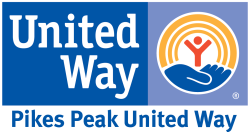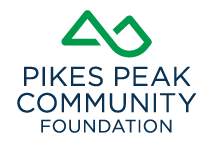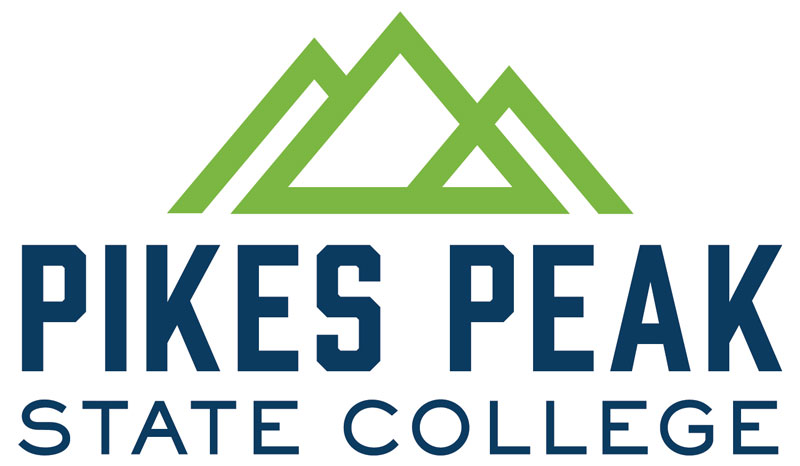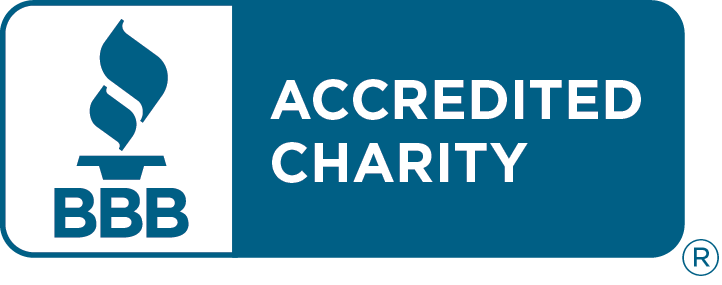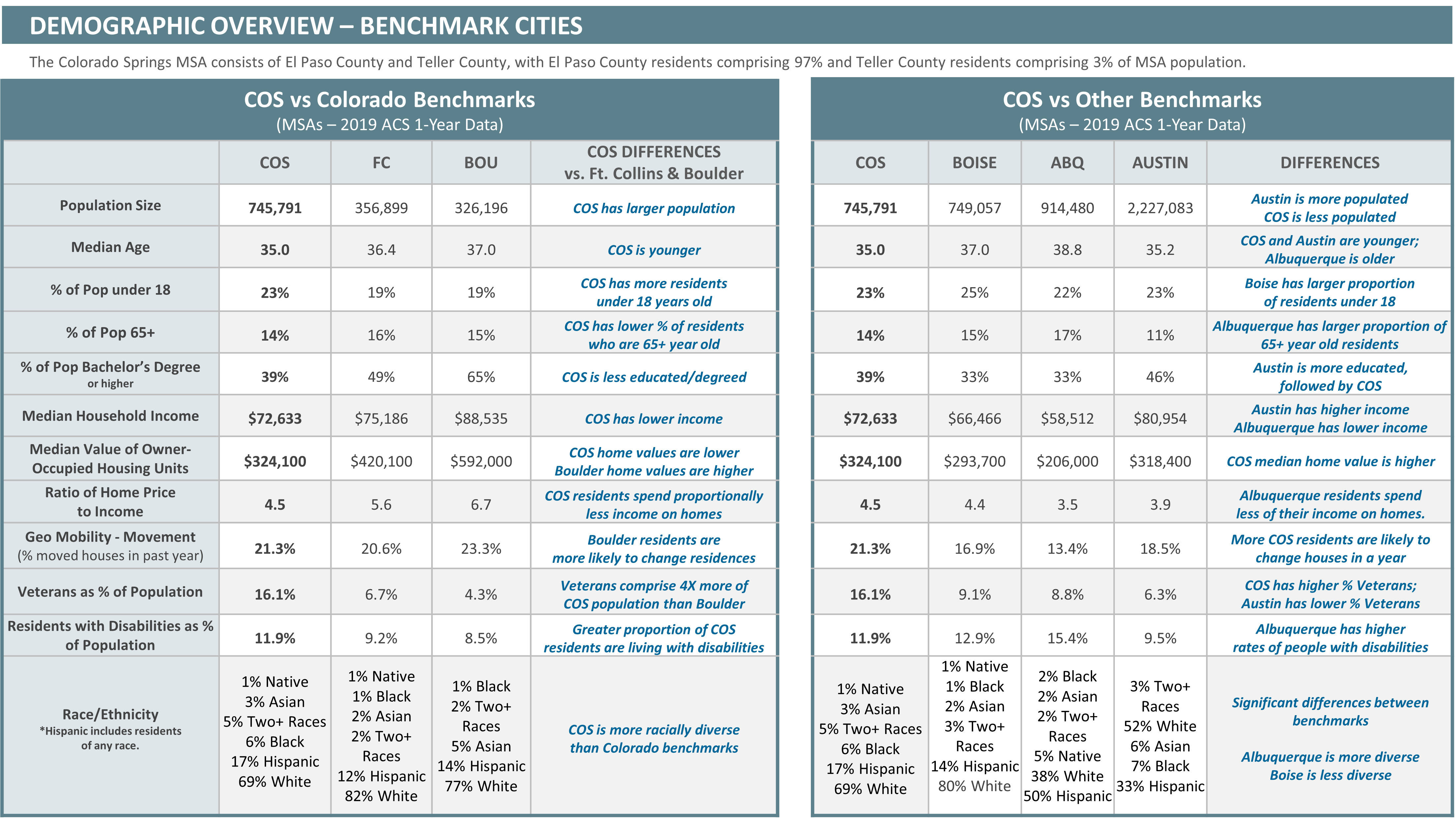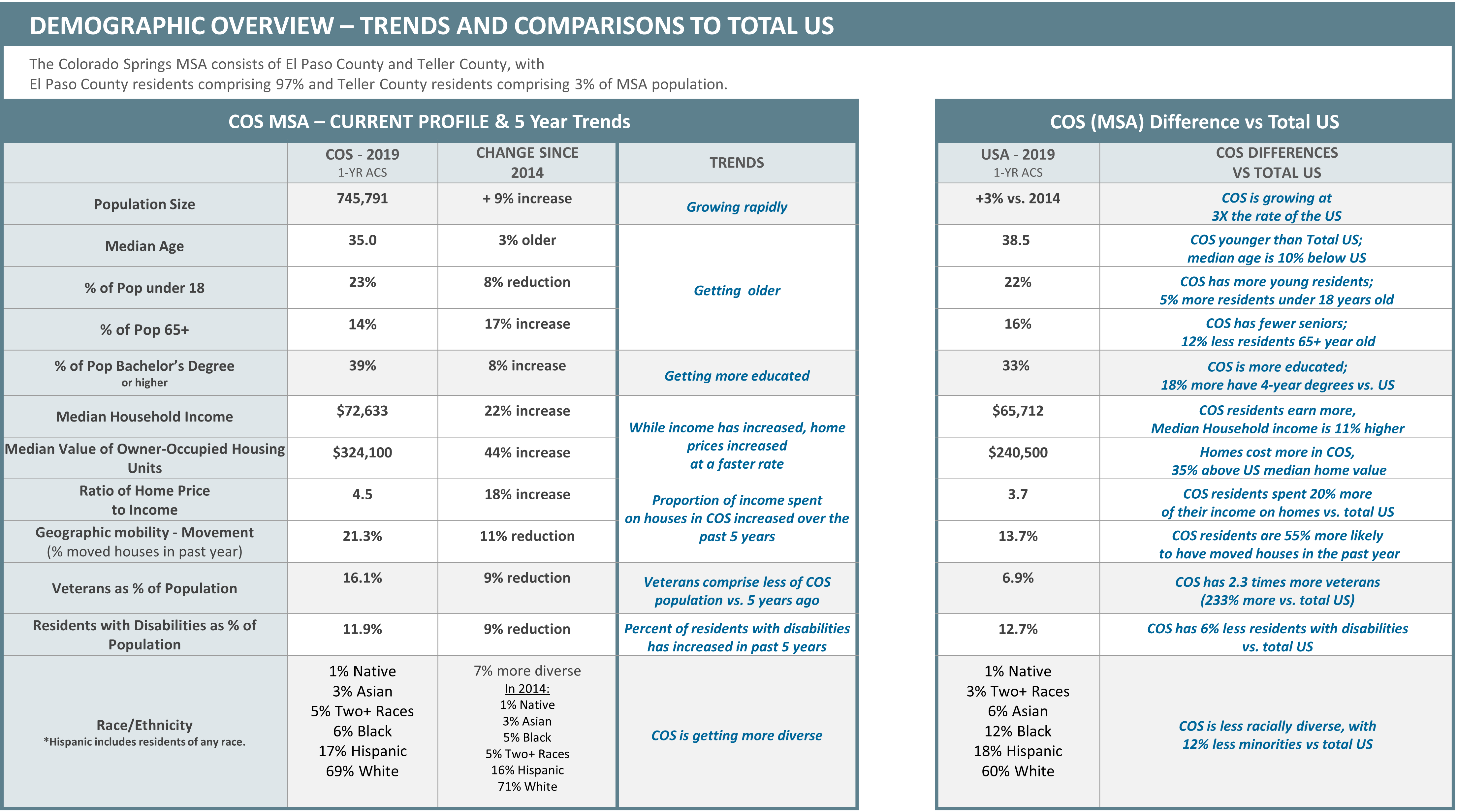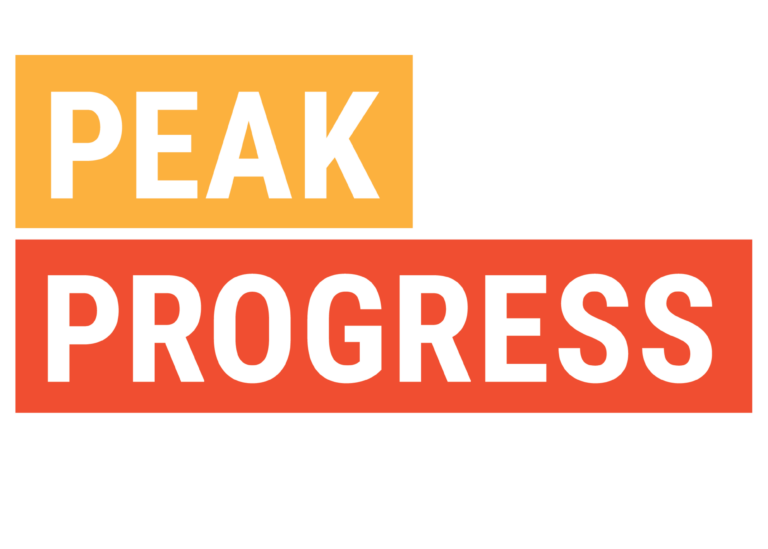
What is Peak Progress: Quality of Life Indicators (QLI)?
Peak Progress (QLI) is a community effort to look at and evaluate different components of quality of life in the Pikes Peak Region. This project convenes volunteers, community members and leaders from across the region (Vision Councils) to gather and evaluate data and create goals (referred to as “Priority Areas”) in various categories.
This report originated in 2007 after Howard Brooks and Jerry Smith recognized the need for benchmarking information and gathered the necessary community support and resources to publish the first edition. The 2021 report seeks to move the report forward by not only focusing on indicators, but also looking for ways to take these findings and create actionable change. To do this, we followed the original process of creating benchmarks by comparing the Pikes Peak Region to other regions in the United States, as well as looking at data over time.
The report is for anyone, from community members to elected representatives and is a highly beneficial tool that provides reliable and easy-to-understand data with the potential and proposed steps for actionable change.
Our hope with this report is to not only inform our community, but to spark interest in action. Each section has a few “Priority Areas”, or actions, that community members can take to improve our region.
What is Peak Progress: Quality of Life Indicators (QLI)?
Peak Progress (QLI) is a community effort to look at and evaluate different components of quality of life in the Pikes Peak Region. This project convenes volunteers, community members and leaders from across the region (Vision Councils) to gather and evaluate data and create goals (referred to as “Priority Areas”) in various categories.
This report originated in 2007 after Howard Brooks and Jerry Smith recognized the need for benchmarking information and gathered the necessary community support and resources to publish the first edition. The 2021 report seeks to move the report forward by not only focusing on indicators, but also looking for ways to take these findings and create actionable change. To do this, we followed the original process of creating benchmarks by comparing the Pikes Peak Region to other regions in the United States, as well as looking at data over time.
The report is for anyone, from community members to elected representatives and is a highly beneficial tool that provides reliable and easy-to-understand data with the potential and proposed steps for actionable change.
Our hope with this report is to not only inform our community, but to spark interest in action. Each section has a few “Priority Areas”, or actions, that community members can take to improve our region.
Areas of Study
Peak Progress (QLI) assesses the Colorado Springs Metropolitan Statistical Area (MSA), as well as the City of Colorado Springs and El Paso County. An MSA is a geographical region with a high population at its core and strong economic ties throughout the area. MSAs are determined by the U.S. Office of Management and Budget and are used by such federal government entities as the Census Bureau for statistical purposes. In most cases, an MSA is centered on a single city; in the case of our community, the Colorado Springs MSA includes all of El Paso and Teller Counties. The area is often referred to as the Pikes Peak Region.
Comparison MSAs
This year’s Peak Progress highlights three types of cities:
- Peer (cities similar in size and economy): Boise and Albuquerque.
- Colorado Cities (to see how we compare to other cities in our state): Fort Collins and Boulder.
- Perceived Aspirational (deemed one of the most popular/desirable places to live): Austin, TX (ranked as the #1 place to live, one spot ahead of CO Springs).
Appreciations
Publishing the 8th Edition of the Quality of Life Indicators and the 1st Peak Progress (QLI) Report for the Pikes Peak Region represents a significant accomplishment for our community; a step towards creating the change we want to see; and a culmination of the efforts of hundreds of volunteers and many organizations. We have many people to thank who have contributed to this report, far beyond what can be captured in these pages. However, these people represent one of things that make this community great – people who care and give freely of their time and expertise!
Special Thanks
We would like to give a special thanks to our chairs and councils. This process was impacted significantly by COVID-19, and we would like to thank everyone for sticking with us from the beginning. Many of our volunteers had to take on additional responsibilities at their places of employment and their homes, but they continued to do volunteer work for Peak Progress (QLI). The time and dedication of our volunteers was above and beyond what was expected, and this could not have been accomplished without each one of them. A list of the members on each council can be found at the bottom of this webpage.
Thank you to Pikes Peak Library District for helping us find librarians to assist with research and data collection.
Thank you to the Advisory Council for their leadership and guidance on Peak Progress (QLI): Bob Cutter, Howard Brooks, Brian Risley, Dick McCaskill, Jerry Musselman, Jim Johnson, Laura McGuire, Lisa Bachman, Lynette Crow-Iverson, Margaret Sabin, Pam Shockley-Zalabak, Rocky Scott, Venkat Reddy, Laura Neumann
Thank you to our writer, Amy Husted, for her skills and talent.
Thank you to Elevated Insights, McGee Research and Catalyst Research for data guidance, data quality and distillation.
Thank you to AdPro 360, especially Kaitlyn Storm, for the digital implementation.
Areas of Study
Click on a topic to dive into exciting data and information about the Pikes Peak Region!
Our Volunteers
Peak Progress (QLI) is a community effort that has engaged 150 community leaders in the Pikes Peak Region. Thank you to our volunteers for their valuable time and knowledge!
- Morgan Hester, Chair
- Alicia Gonzalez
- Landon Cook
- Kyle Campbell
- Kelsey Leeson
- Travis Easton
- Will Mast
- Lor Pellegrino
- Hannah Van Nimwegen
- Clarissa Thomas
- Caleb David
- Karole Campbell, Chair
- Beatriz Arsuaga, Vice Chair
- Warren Epstein
- Stephanie Adams
- Jessica McMullen
- Lauri Martin
- Jeff Thomas
- Dani Barger
- Greg Dingrando
- Katie Pelton
- Sean Holveck
- Jenifer Furda, Chair
- Marjorie Noleen
- Deb Mahan
- Paige Whitney
- Chris Valentine
- Jordan McHenry
- Shannon Anderson
- Diane Loschen
- Dawn Conley
- J Trylch
- Jacob Anderson
- Debbie Balch, Chair
- Barbara Headle
- Doug Palmer
- Leslie Sabin
- Cailee Schade
- Erin Bradley
- Amy Gillentine-Sweet
- Terry Zarsky
- Kathleen Johnson
- Matt Cooney, Chair
- Rebecca Theobald
- Matt Gottfried
- John Putnam
- Bruce Fogarty
- Robin Roberts, Chair
- Dirk Draper
- Lynette Crow-Iverson
- Aikta Marcoulier
- Austin Buckett
- Matt Drosendahl
- Kevin Walker
- Laura McGuire
- Terry Hayes
- Paul Rochette
- Jared Usrey
- Debbie Miller
- Valerie Martin Conley, Chair
- Emily Sherwood, Vice Chair
- Lance Bolton
- Betsy Brown
- Dr. Wendy Birhanzel
- Susan Payne
- Jackie Florendo
- Cory Notestine
- Katherine Hochevar
- Andy Gunning, Chair
- Deb Hamilton, Vice Chair
- Hillary Reed
- Joe Aldez
- Sarah B Johnson
- Jeff Eckhart
- Scott Trainor
- Deb Walker
- Bret Waters
- Carol Bruce-Fritz, Chair
- Anne Beer
- Cari Davis
- Claire Girardeau
- Mary Ellen Benson
- Lynne Jones
- Fadi Youkhana
- Brian Baxter
- Kenya Lee
- Liz Price
- Annie H. Lee, JD
- Trista Kochis
- Christopher Aaby, Chair
- Samantha Bailey
- Dave Padgett
- Jennifer Peterson
- Amber Shanklin
- Dylan Harris
- Mary Barber
- Jane Ard-Smith
- Nick Ragain, Chair
- Becky Leinweber
- Karen Palus
- Cody Wigner
- Willie Kazaskie
- Cheryl McCullough
- Amy Long
- Susan Davies
- Kim King
- Sandy Hancock
- Larissa Powers
- Laura Broderick
- Tammy Sayles
- Hillary Dodge
- Deb Hamilton
- Brian Grady, Chair
- Fletcher Howard, Vice Chair
- Lt. Matt Racine
- Lt. Bud Perry
- Anne Markley
- Brian Cummings
- Morgan Mote
- Justin White
- Emma Kerr
- Carvine
- Katherine Fuller
- Mary Stegner, Chair
- Kelly Hurtado
- Noreen Landis-Tyson
- April Speake
- Christopher Garvin
- Shannon Brice
- Haley Chapin
- Brian Newsome
- Roxanne Eflin
- Lorri Orwig
- Kim Mauthe
- Brenda Rogers
- Patricia Yeager
- Craig Blewitt, Chair
- John Liosatos, Vice Chair
- Brian Risley
- Jody A. Barker
- Tamara Dipner
- Whitley Crow
- Rocky Scott
- Kate Brady
- Troy Stover
- Jason Nelson
QLI Reports
READ PREVIOUS QUALITY OF LIFE INDICATORS REPORTS
Stay in the loop
Follow Pikes Peak United Way on social media for all Peak Progress (QLI) updates!
